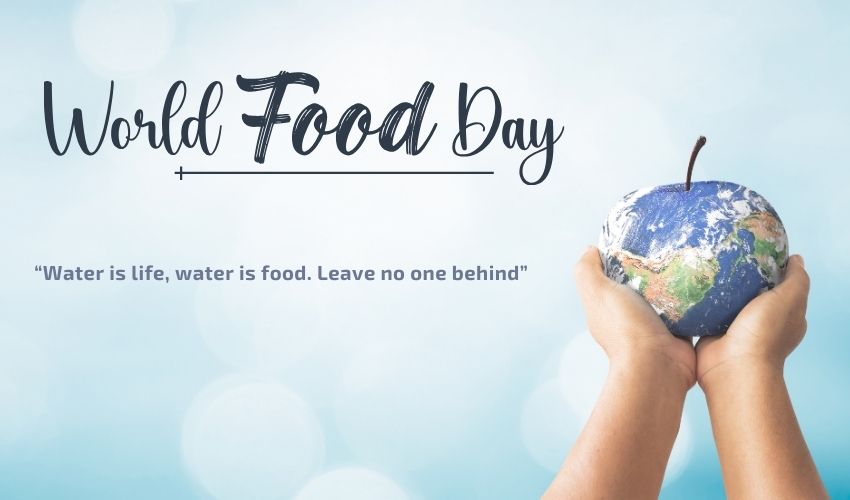Every year on October 16, the world unites in the fight against ‘global hunger’ and ‘malnutrition’ to mark World Food Day.
The day not only raises awareness about the global food crisis but also serves as a call to action to ensure food security and equitable access to nourishing food for all.
This year, the theme of the day is "Water is life, water is food. Leave no one behind".
The theme emphasizes the pivotal role of water in food production and the importance of ensuring that no one is left behind in the quest for food security.
Food shortages, adulteration imperil 40% of Pakistan's population
Good food is a cornerstone of good health, yet in Pakistan, it has become increasingly challenging to access uncontaminated products. Citizens find themselves taking a gamble when they seek pure milk, curd, and wholesome meat in local markets.
On World Food Security Day, Pakistan confronts a grim reality as approximately 40 percent of its population grapples with food shortages, while the adulteration of essential food and beverages poses a significant health hazard. Securing pure milk and healthy meat in the market has become akin to a Herculean task, and the Punjab Food Authority's efforts to combat food adulteration are under scrutiny by citizens who question their effectiveness.
Amid these concerning circumstances, the Punjab Food Authority, responsible for safeguarding food quality and authenticity, has launched an anti-adulteration campaign.
The "Safe Food Zone" initiative, slated to run until December 31, includes measures to inspect water filtration plants, counter milk adulteration, and address violations across the food sector.
Amna Rafiq, Director of Operations in the North for the Punjab Food Authority, explained, "Our efforts to combat adulteration include a comprehensive approach, targeting water filtration plants and milk adulteration, along with addressing various violations within the food supply chain."
History
The Food and Agriculture Organization (FAO) of the United Nations established World Food Day in 1979.
This annual event was conceived to shed light on global hunger and malnutrition issues and commemorate the founding of the FAO in 1945.
Since its inception, World Food Day has grown to become one of the most recognized dates on the United Nations calendar, celebrated in over 150 countries.
Significance
World Food Day 2023 carries enormous significance. It highlights the stark reality that despite sufficient global food production, one in nine people worldwide suffers from chronic hunger. Shockingly, this burden disproportionately affects women, with about 60% of the world's hungry being female.
- Approximately 70% of the world's most impoverished people reside in rural areas and depend on agriculture for their livelihoods.
- This underlines the critical importance of sustainable agriculture and equitable access to resources in addressing global food challenges.
- Perhaps the most alarming fact of all is that more people die from hunger than from the combined effects of malaria, tuberculosis, and AIDS.
- Undernutrition also claims the lives of countless children, with 45% of newborn mortality attributed to this condition, impacting 151 million stunted children aged five and under.
- More than 25% of the global population, a staggering 1.9 billion people, are struggling with overweight and obesity. Shockingly, 672 million individuals are obese, leading to 3.4 million deaths annually. In some nations, obesity claims more lives than homicides.
- Malnutrition exacts a considerable economic toll, costing the world economy a staggering USD 3.5 trillion each year.
The world has the resources, knowledge, and technology to combat hunger and malnutrition; now, it's a matter of commitment and cooperation to ensure that food is a basic human right, not a luxury.



























